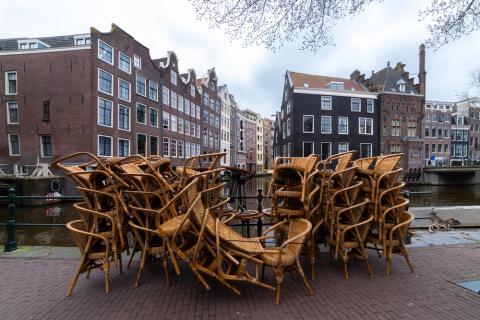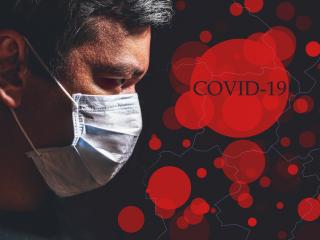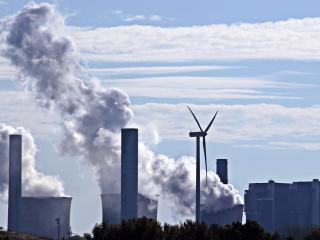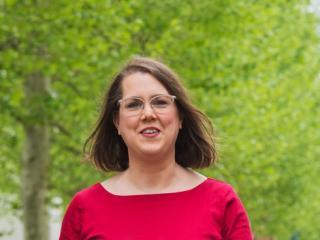Resilience in an infected society
Resilience is the ability to anticipate, recover, and return to normal. But, we are also capable of eventually becoming stronger and better as a society, even as a result of an exceptional crisis caused by the corona outbreak.
Ton Wilthagen and Paulien Bongers
In his already historic television speech on March 16, the Dutch Prime Minister Rutte outlined the far-reaching expectations and consequences of the raging coronavirus. It is clear that this coronavirus not only infects our own health but also the basic structures of society. In our part of the world, we sometimes seem immune to disastrous events that occur more often elsewhere.
Three aspects of resilience
This does not appear to be the case at present. The resilience of individuals and of society as a whole will be put to the test in the coming period. But that same resilience will eventually lead to innovation in issues we have been stuck with for a very long time —and thus to progress. Resilience is not an abstract concept. It has three aspects.
1. Anticipate
Firstly, the ability of humans and society to anticipate a 'shock' or wide-ranging developments. So, knowing and estimating what is coming and adjusting to it. Certain developments take place gradually. Consider the ageing of society, which leads to higher spending on care obliging us to work a little longer to safeguard our prosperity.
Predicting high-impact events is obviously less easy. Think of the September 11 attacks in the United States in 2001 and similar attacks in Europe a number of years later. Nor did we see the major economic crisis from 2008 to 2014 coming. In many areas, however, we are making progress with data science enabling us to give early warnings (early warning systems), as in the case of the storms and hurricanes that occur all over the world. So, resilience in this aspect is mainly a question of more and better knowledge. This also applies to individuals. If you know in time that your job or profession is disappearing or changing, you can retrain for another job and avoid unemployment.
2. Recover
Secondly, resilience entails that we need to recover from a shock or major event and return to normal. This now applies to many people who are ill and have a high fever. Returning to normal body temperature is then the goal. For society, we can draw a parallel. Many companies, organizations, and people who are no longer able to do their normal work now hope that it will be possible to resume their work within the foreseeable future. This also requires resilience: financially, socially, and mentally.

Resilience entails that we need to recover from a shock or major event and return to normal
Wilthagen/Bongers
Our economic growth is likely to slow down significantly in the coming period, and the goal is to return to normal growth at some point. To cushion this economic and social shock, a large number of measures are currently being taken by the government, provinces, various agencies, and labor market regions. This also applies to the social aspect, which was also rightly pointed out by Rutte. We have to look out for each other and take care of each other. Individual people do not always have sufficient resilience. In the Netherlands and similar countries, we are privileged to have a lot of resources at our disposal, and that also means that we have to contribute to the recovery in other countries where that is not the case, both in Europe and worldwide.
3. Renew
The third component of resilience is seen less often. Resilience is certainly not just a return to the old state. Resilience also means renewing, so that we as humans and society become stronger and better. That is perhaps the greatest challenge. In these enormously difficult and uncertain times, this is nevertheless the beckoning perspective. At the moment, we appear to be able to step over all kinds of hick ups in no time at all. Discussions in which we constantly got stuck. Observe how we now also support flexible workers and the self-employed to stay at work or not be reduced to poverty. In the Netherlands, we have been arguing for twenty years about the contrast between flexible work and permanent contracts and about the question of what to do with the self-employed. Now we are taking action.
We are now making major leaps in digitalization
Wilthagen/Bongers
We are now also making major leaps in digitalization, something that was also difficult in the Netherlands. We are now learning quickly and by necessity how to teach pupils and students online as well. How people can still work together productively and efficiently outside the fixed workplace. In this way, our knowledge becomes much broader, more quickly accessible, and less dependent on time and place.
Strong government and public sectors
This crisis also offers us individual, social, and economic reflection—back to basics. To the question what did we do it for and in what traditional way did we do it. We are now going to realize once again that the market is a very effective way of organizing matters in a society, but that we cannot do without a strong government and public sectors. We put contradictions in society into perspective and, hopefully, we will hold on to that. Anyone can become ill because of the coronavirus: old, young, white, or colored. A deep crisis equalizes.
More resilience is a matter of more knowledge and more cooperation amongst people, companies, organizations, education, and governments at all levels. Together we can draw up, implement, research, and maintain the agenda of a resilient and meaningful society. This crisis, in which both health and the economy are affected, is unprecedented, but above all let's use the opportunities we have to emerge from it better and stronger.
Ton Wilthagen is Professor Labor Market at Tilburg University, driving force behind the theme “resilient society” within both Tilburg University and the National Science Agenda and currently NIAS-NSvP fellow.
Paulien Bongers is director of science of the TNO component “Healthy Living”, endowed professor at the Department of Social Medicine of the Amsterdam UMC and the driving force behind the theme “resilient society” within the National Science Agenda.
An earlier version in Dutch was published in the Brabants Dagblad, March 19, 2020.




